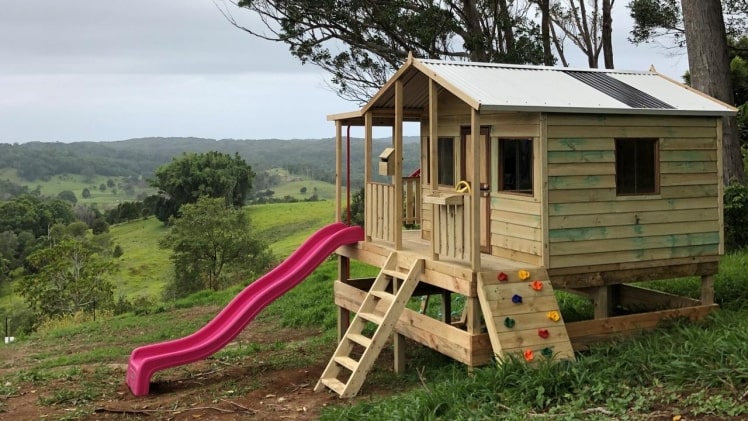Everyone needs their own space to grow, develop and spend some time with themselves, including children. A cubby house provides kids with a room where they can thrive. Unlike a bedroom, a cubby house is a small playhouse. It is a tiny house that kids can transform any way they like, and parents can keep the house in their garden or yard, allowing them to monitor their child’s safety.
A cubby house allows children to have a space to play and assures parents that their children have a room of their own to hone their physical and mental development. Cubby houses keep a child’s safety, growth, and fun in mind. They are small, functional playhouses you can fold and store in your desk drawer after children have finished playing in them for the day.
What Is The Importance of Cubby Houses?
Cubby houses help with the growth and development of kids. A cubby house is small enough to accommodate only a kid, giving the child the alone time and space to do whatever they want. If you want to know what else a cubby house can do for a child, read ahead.
Makes Children Independent
A play cubby is specifically designed for children. Their small size ensures that only a child can fit inside them. A cubby house is, in simple words, a child’s world. Having the space to do things independently without an adult helping them gives children a sense of independence.
Children have to manage their cubby houses by themselves, allowing them to learn the meaning and concept of responsibility. Managing their cubby houses develops a routine and habit in kids, and they also tend to keep their rooms clean.
Enhances Imagination
With no adults or parents to monitor them inside their cubby house, children can fuel their imagination. Having a space to release their creative juices also allows children to think of different stories and scenarios, making them more creative.
Cognitive and Language Development
Children grow and learn through various mediums, and imitation is one of them. Even though a cubby house is not a child’s actual room, children begin thinking of cubby houses as their bedrooms. Thus, they interact the same way they do in their actual rooms with their parents. They tend to imitate conversations and interactions with their parents, which helps them develop their cognitive and language skills.
Increases Self-Confidence
Children make their own decisions and do whatever they want inside their cubby house, giving them the confidence to be in charge and decide things for themselves.
Minimises Screen Time
Buying a cubby house for your kid ensures they spend time outside, away from their room and gadgets. Even though we live in a world where almost everything takes place on the internet, we also need to monitor a child’s screen time and internet usage. Playing outside enhances a child’s motor skills and relaxes their mind. Plus, spending time outside socialises children.
Playing outside is an excellent way for children to form and nurture connections and relationships with nature, their families, and other children. Cubby houses reduce the time children spend in front of their phones or computers and help them interact with other children and people.
In Conclusion
Cubby houses for kids make them more independent and responsible. Additionally, they help kids become more social, creative, and imaginative.

